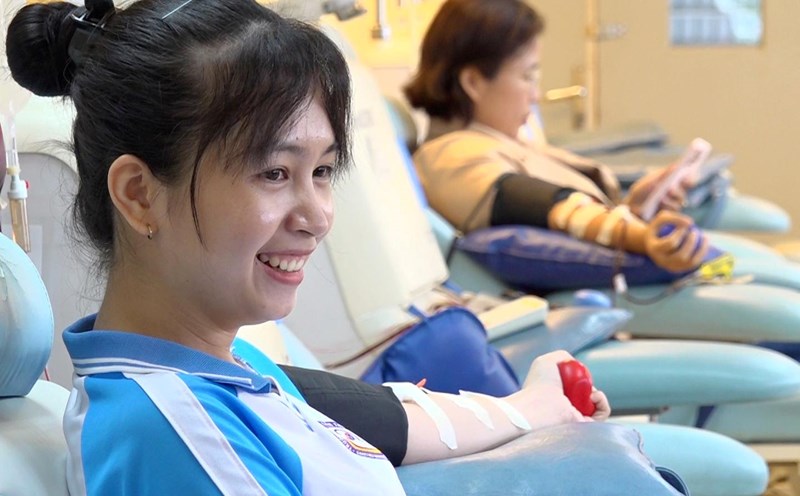The actual results are better than any predicted scenario
After more than 1 month of Decree 70/2025/ND-CP coming into effect, the tax sector has initially recorded positive results, with the implementation speed far exceeding the set targets.
Mr. Mai Xuan Thanh - Director of the Tax Department, said that by the end of June 2025, the whole country had 47,078 business households registered to use electronic invoices, reaching 125.3% of the target.
The leader of the Tax Department said that from the implementation until the end of June 2025, 238,942 businesses have registered to use electronic invoices generated from cash registers. In the first 6 months of 2025 alone, 145,929 business establishments have registered to use, of which 45,247 business households under the contract method with revenue of VND1 billion/year or more have applied, basically completed according to the provisions of Decree 70/2025/ND-CP.
Mr. Mai Xuan Thanh said: "The actual implementation results have been more positive than all predicted scenarios. The application of electronic invoices not only records full and transparent revenue but also creates a foundation for businesses to access technology, change behavior and gradually transform the operating model".
Sharing the same view, Mr. Mai Son - Deputy Director of the Tax Department - assessed that the implementation of electronic invoices from cash registers has helped business households initially get acquainted with the digitalization process, saving time, limiting risks in tax management and increasing proactiveness in daily business activities.
Looking more deeply from a strategic and systematic perspective, Mr. Nguyen Quang Huy - CEO of the Faculty of Finance - Banking, Nguyen Trai University - said that the fact that business households registering and using electronic invoices exceeds the set target by 25.3% is not only a figure exceeding expectations, but a clear demonstration of the strong transformation in the digital transformation process of the tax sector.
In the long term, the data platform from electronic invoices will help the State design a microfinance policy, support the right subjects, and at the same time expand access to credit, banking and financial services for business households - gradually making them more legitimate economic entities, integrating more deeply into a comprehensive and sustainable digital economy - Mr. Huy analyzed.
Business households are ready to approach new methods
The implementation of electronic invoices according to Decree 70/2025/ND-CP is a change in the awareness and actions of business households themselves, those who are familiar with traditional business methods, handwritten documents, handwritten invoices or do not use invoices.
Ms. Nguyen Thi Hong - owner of a clothing store in Tay Ho, Hanoi - shared: "At first, I was worried because I was not used to operating a money computer, and was also afraid that the tax authority would check more. But after being instructed by the tax officer, I found the software quite easy to use. Now the revenue is also transparent, at the end of the day, I am not afraid of making mistakes".
As for Mr. Tran Van Hung - the owner of a shoe store in Cau Giay Hanoi, now over 60 years old - the initial fear of technology is inevitable.
"I thought I would have to buy expensive machinery and difficult-to-use software. But in reality, when I was supported with installation, it was not too difficult. Moreover, there is no need to submit documents as before" - Mr. Hung said.
In fact, many businesses initially were concerned that using electronic invoices would reveal higher revenue than the previous contract level and result in tax collection.
Responding to the concerns of business households, Mr. Nguyen Tien Minh - Deputy Head of Hanoi Tax Department - affirmed: "The tax sector does not collect for revenue differences arising from changing the recording method. For contract businesses, if the revenue increases by more than 50%, they only need to notify to adjust the contract for the remainder of the year.
At the same time, to control risks and ensure fairness, the tax sector is coordinating with payment and transportation intermediary platforms to match data, and conduct management based on information instead of sentiment.
Tax sector moves close to actual needs
According to Mr. Mai Son - Deputy Director of the Tax Department, the tax sector is studying a simple declaration solution via smartphone or personal mobile device, with the goal of helping even people who are not familiar with technology to easily operate.
"The important thing is that the steps must be close to practical needs, easy to understand, easy to do, not causing psychological pressure or unnecessary procedures" - Mr. Son emphasized.
The survey results conducted by VCCI with nearly 1,400 households announced on July 10 showed: 73% of households said they lacked technology skills; 53% were concerned about cumbersome procedures; 49% had difficulty changing habits; 37% lacked time and equipment investment costs; 51% had never received specific instructions from the tax authority.
According to Mr. Dau Anh Tuan - Deputy General Secretary, Head of the VCCI Legal Department, it is necessary to recognize this as an important transition period and it is inevitable that there will be a conflict.
Lack of technological knowledge, fear or lack of understanding of policies are understandable for small business households that have been operating for many years in a familiar way. What is needed is practical solutions, clear support groups" - Mr. Tuan said.
From the survey and research results, the VCCI expert group recommended: Do not recall, collect, sanction, or confiscate for the period before the household applied electronic invoices. At the same time, supplement more appropriate regulations on accounting, invoices, and documents for small households.











